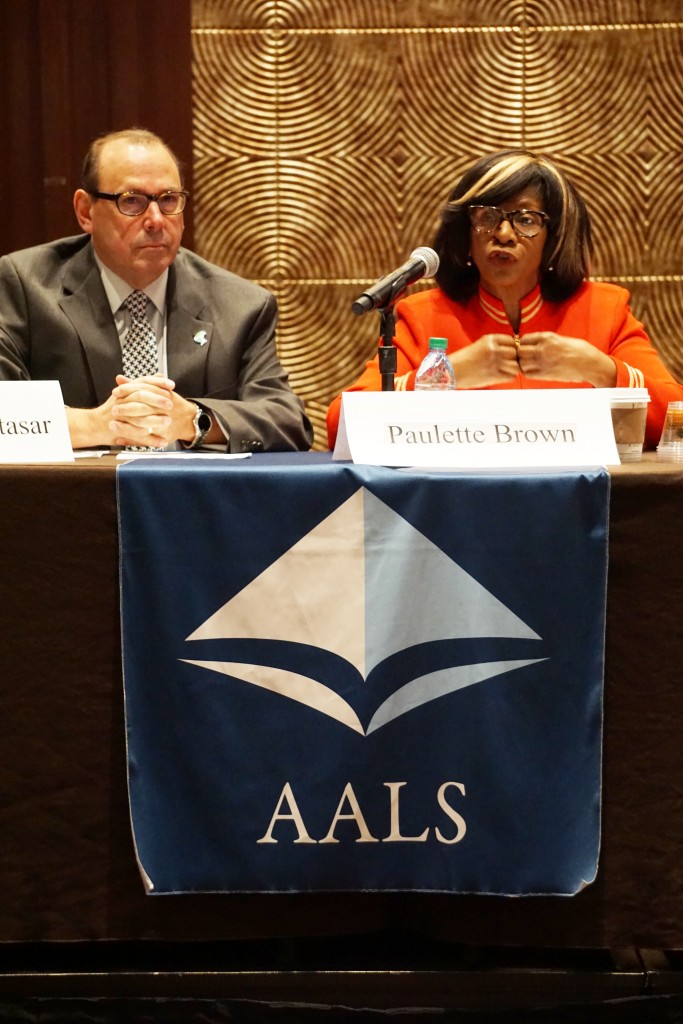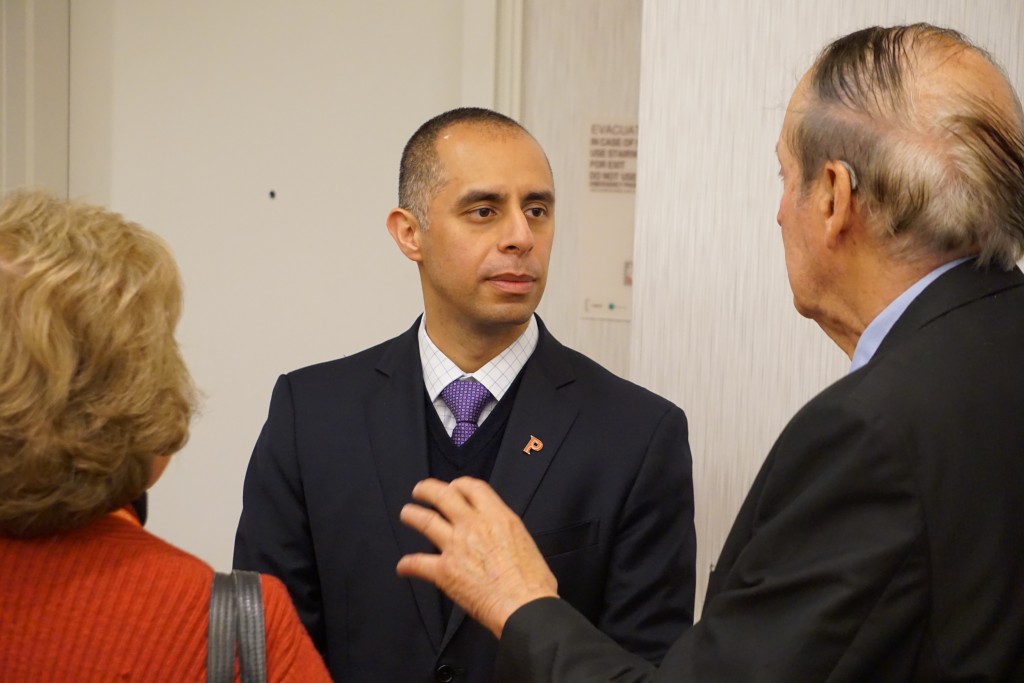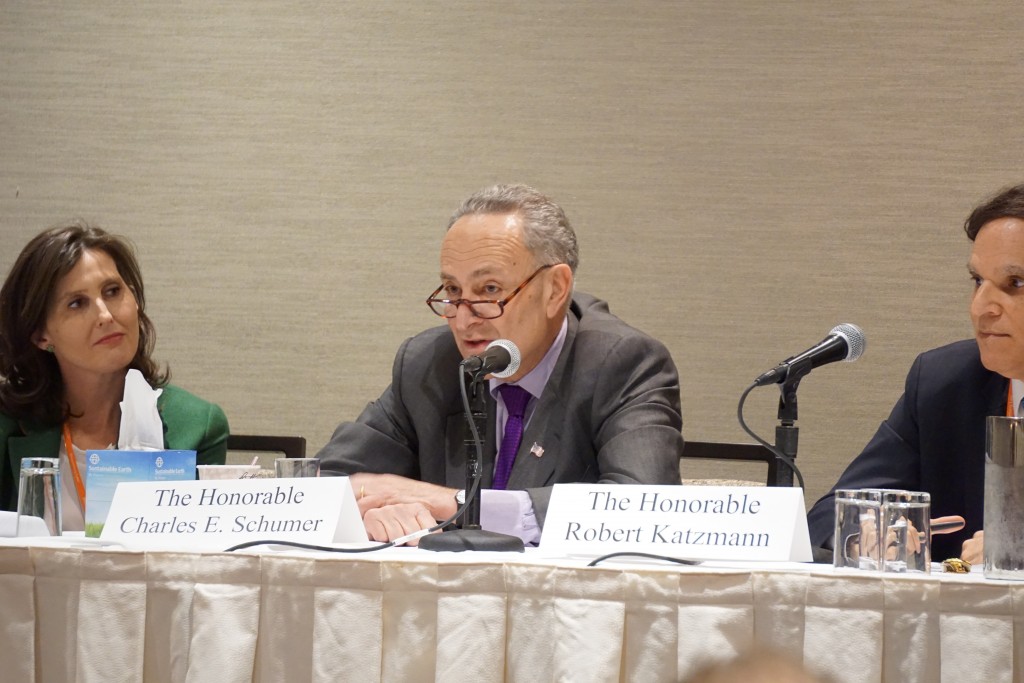More than 3,000 law school faculty, deans, and staff attended the 110th Annual Meeting of the Association of American Law Schools (AALS) from January 6-10, 2016 in New York City. In accordance with the meeting’s theme of “From Challenge to Innovation: American Legal Education in 2016,” programs focused on novel thinking and fresh perspectives on law and legal education at a time of profound change in the legal profession. The event is the largest worldwide gathering of law deans, faculty and staff and featured over 800 speakers at more than 200 sessions covering a wide range of legal topics.
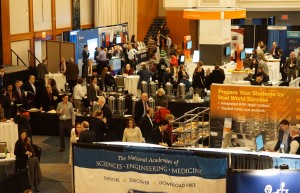
The conference’s opening plenary program on Thursday featured two of the authors of “Lawyers as Professionals and Citizens: Key Roles and Responsibilities in the 21st Century,” Benjamin W. Heineman, Jr., Former Senior Vice President for Law and Public Affairs, General Electric and David B. Wilkins, Harvard Law School.
“The purpose of the essay was to put an emphasis on the imperatives of the lawyers’ responsibilities in an age when too much discussion is on economics,” said Heineman. “It also calls for collaboration between law schools, law firms and legal departments.”
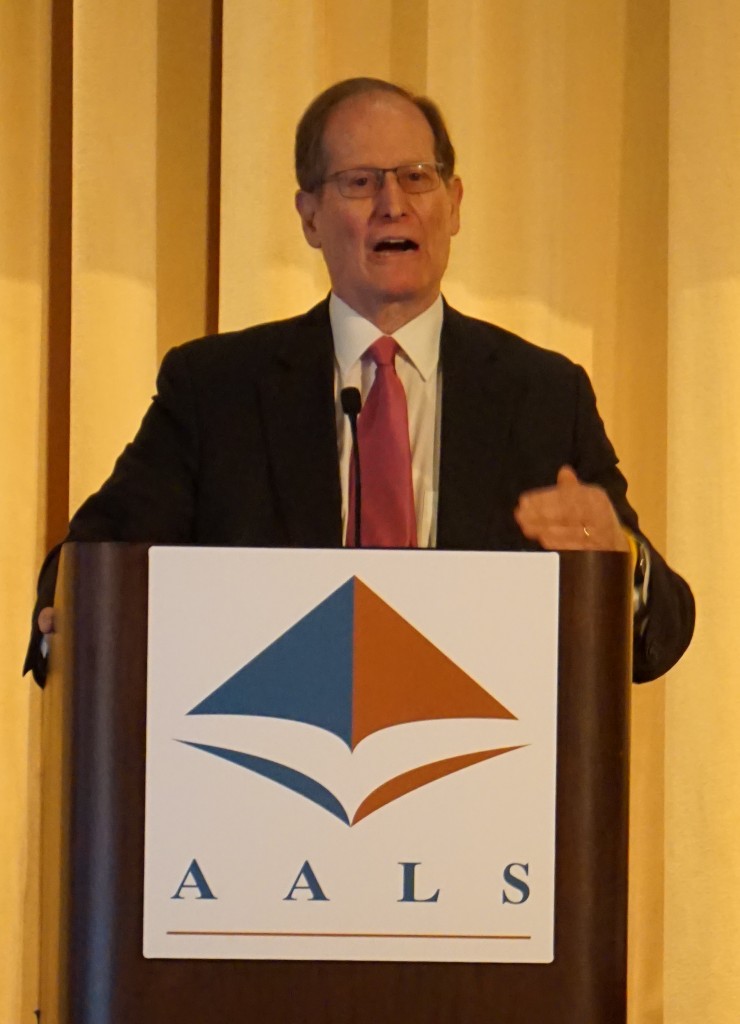
The opening plenary also featured the presentation of the AALS Triennial Award for Lifetime Service to Legal Education and the Law to Herma Hill Kay, University of California, Berkeley School of Law. With a career spanning more than 50 years, Professor Kay was acknowledged for her enormous contributions to teaching, scholarship, and leadership. She is perhaps best known for her leadership as Dean of Berkeley Law from 1992-2000 and as co-author of the Uniform Marriage and Divorce Act (UMDA) which has now become the standard for no-fault divorce nationwide.
“I am honored and humbled, but delighted to accept this award,” said Professor Kay in a pre-recorded video address. “I am proud to join the [previous winners] and look forward to congratulating the 2019 recipient.”
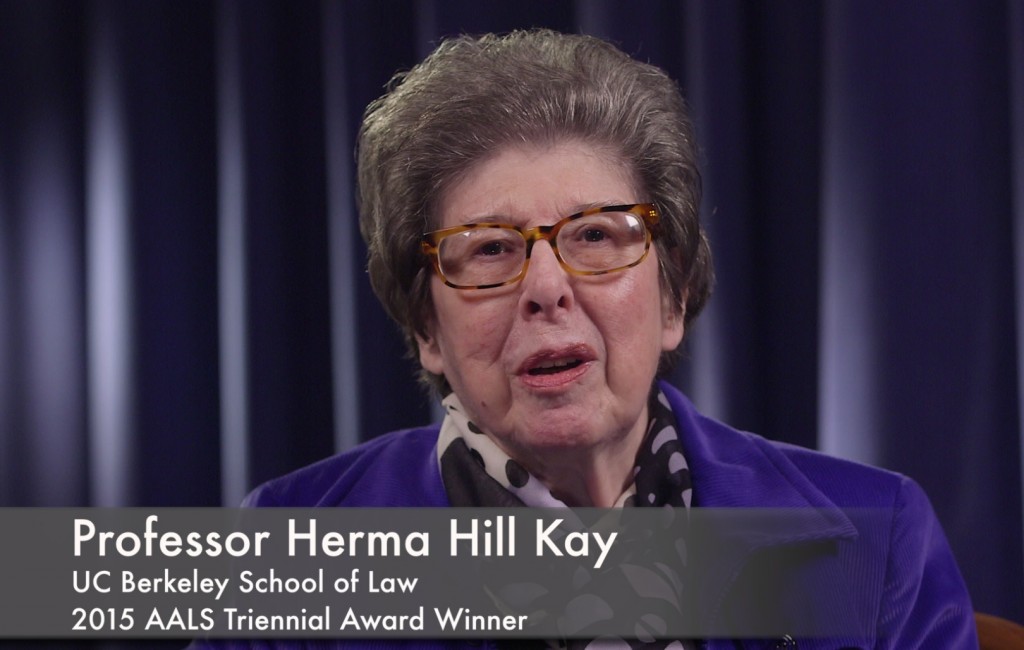
One of the most popular sessions of the 2016 Annual Meeting was “A Conversation with the Honorable Stephen Breyer,” followed immediately by the signing for his book The Court and the World: American Law and the New Global Realities. Justice Breyer discussed his long legal career, his time on the U.S. Supreme Court, and the importance of learning how the law is applied across the globe during the talk moderated by Alan Morrison, The George Washington University Law School.
“I do believe that there’s an incredible need in this country, as well as abroad, to explain to high school or college students why we do what we do and why it is important to them… It’s certainly something we’re all in the business of trying to explain to people,” Justice Breyer said regarding the importance of the rule of law.
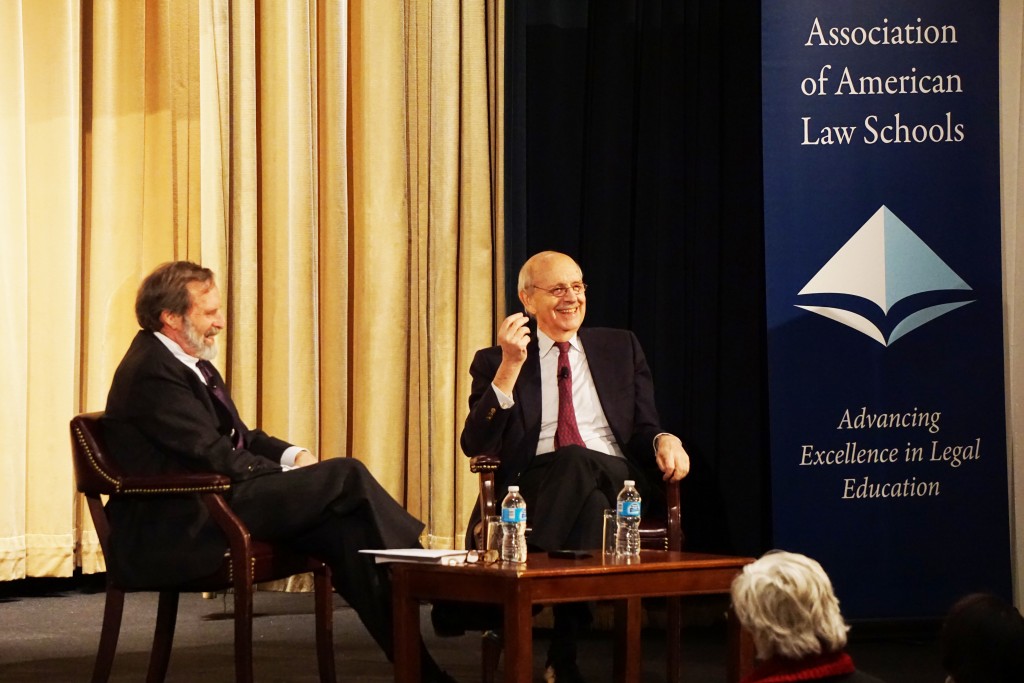
Sponsored by Bloomberg Law, Thursday night’s first ever AALS Opening Reception, held in the Exhibit Hall, was well attended. Michael Bloomberg, Former Mayor of New York and Founder, CEO and President of Bloomberg LP, joined AALS President Blake Morant to welcome attendees to the meeting. Bloomberg gave a short talk, stating that legal research arm Bloomberg Law is “determined to help lawyers and law schools stay ahead of the curve” in this challenging time for the profession.
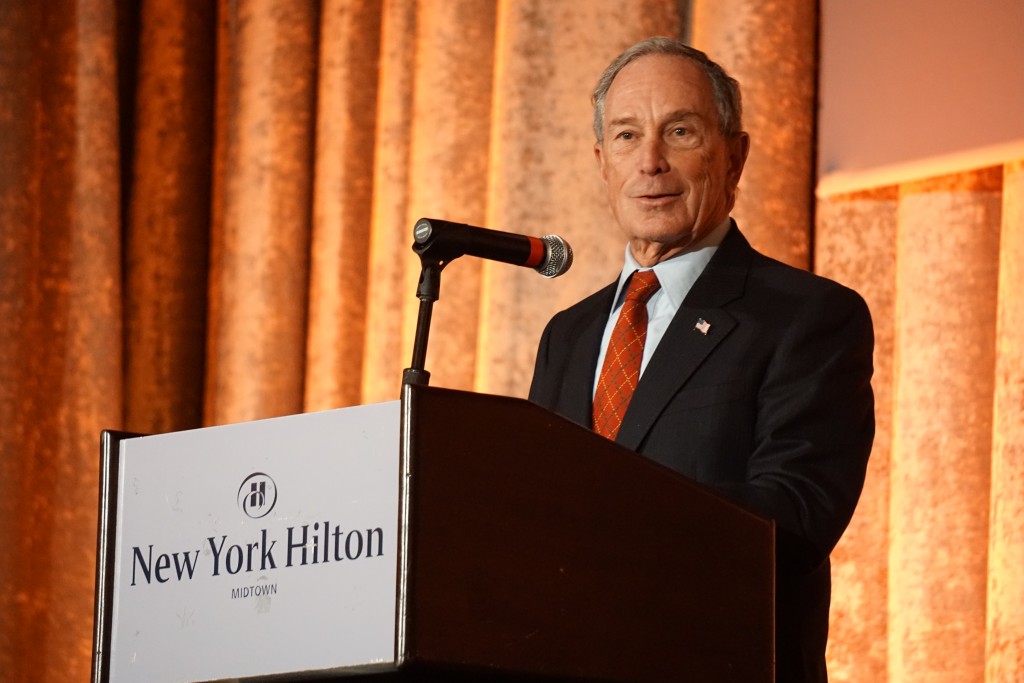
During the course of the Annual Meeting, the AALS House of Representatives voted the University of California, Irvine School of Law into AALS membership and elected Paul Marcus, William & Mary Law School, as President-Elect and Alicia Alvarez, University of Michigan Law School, and Vincent D. Rougeau, Dean, Boston College Law School, as new members of the AALS Executive Committee.
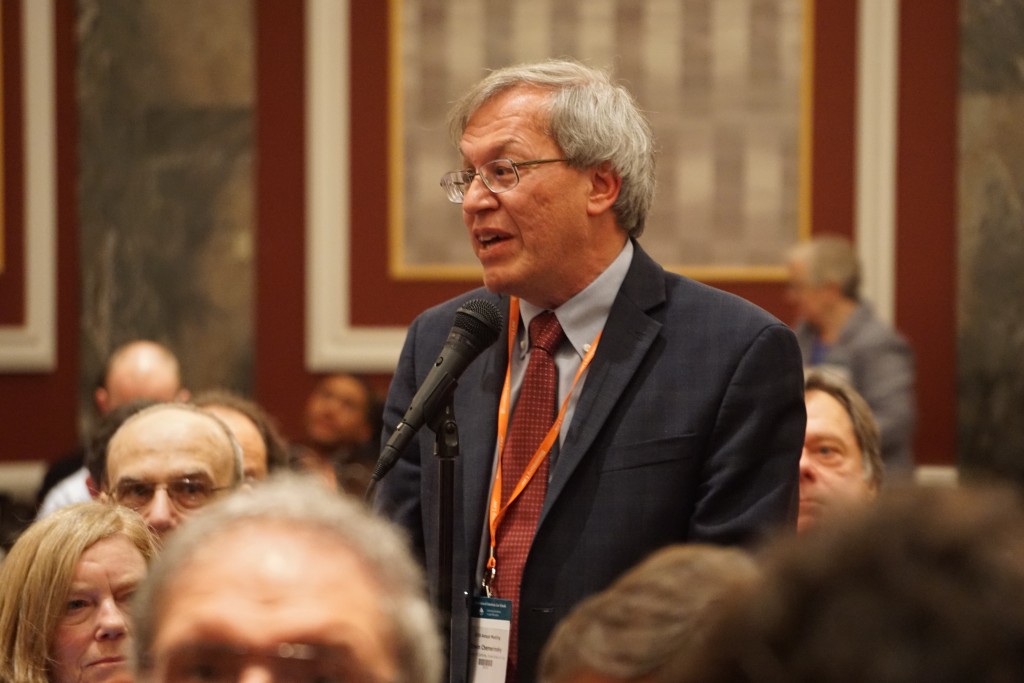
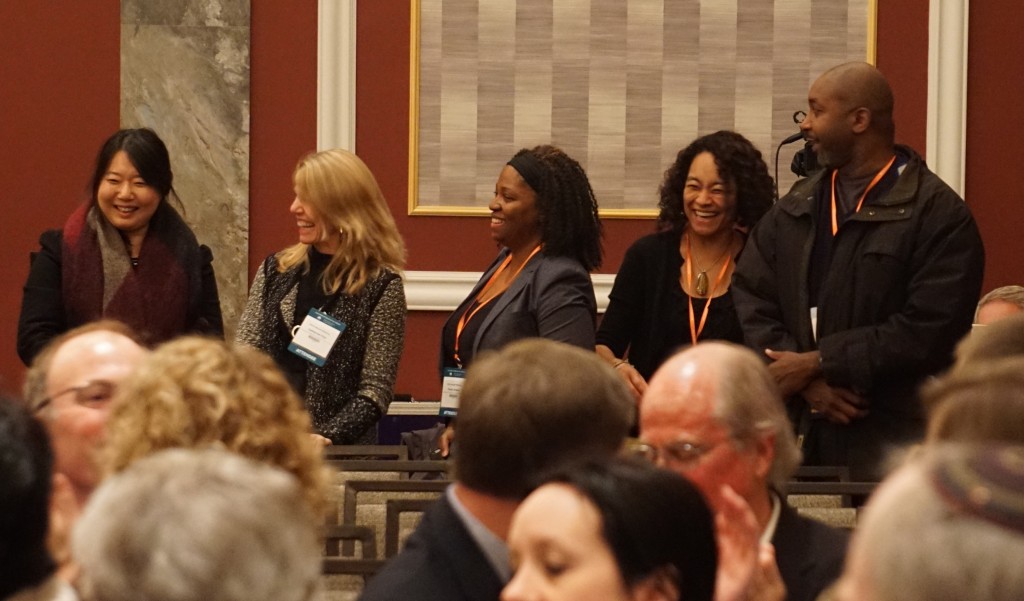
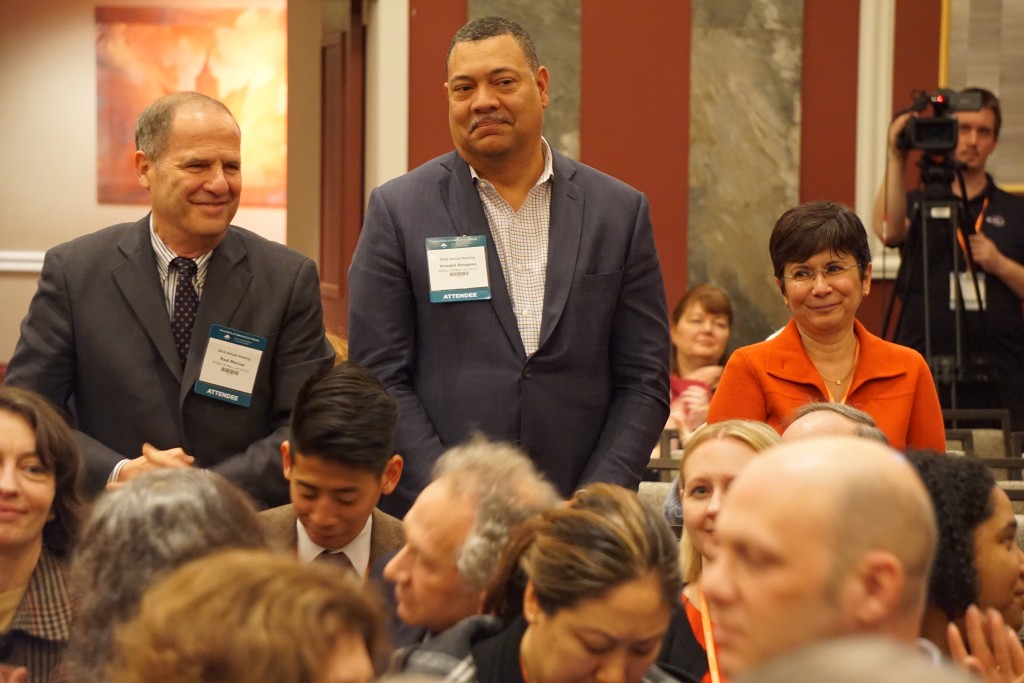
2015 AALS President Blake D. Morant, Dean of the George Washington University Law School, gave his presidential report on 2015 stating “…I remain the pragmatic optimist, noting that our duty to evolve through innovation remains. I also, however, continue in the manifest belief that American legal education, which is still envied worldwide, must not only survive but also thrive.”
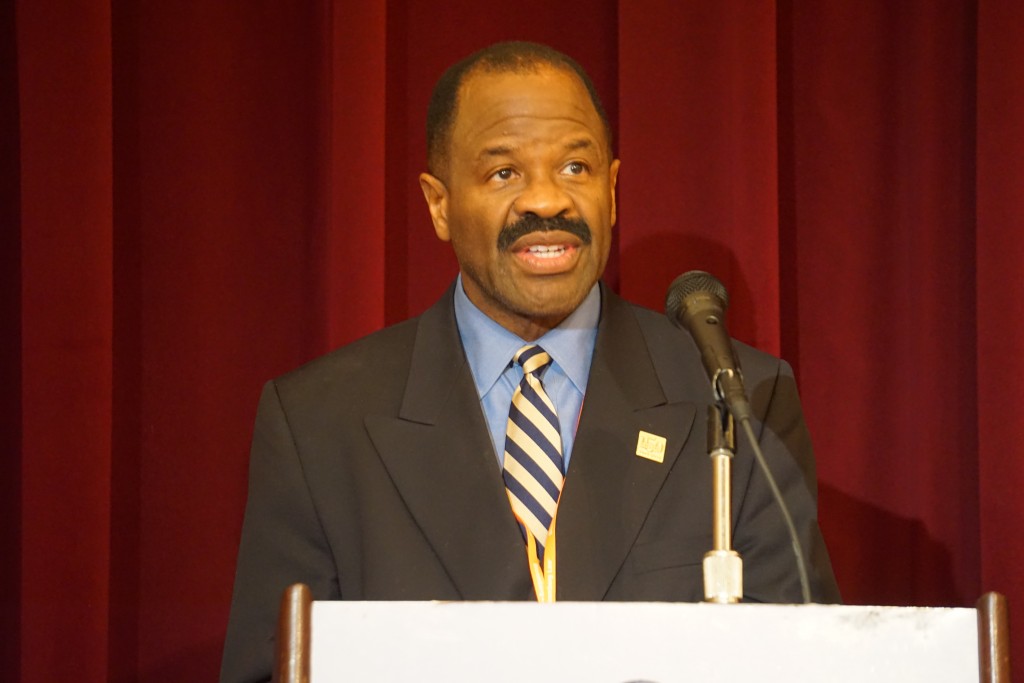
2016 AALS President Kellye Y. Testy, Dean of the University of Washington School of Law, gave her inaugural address at the Second House of Representatives meeting, asserting that “we are striving to enhance AALS leadership to better serve our member schools and to more forcefully and effectively advocate for legal education…when you thrive, we thrive.”
Dean Testy also announced the theme of her presidency and next year’s Annual Meeting: “Why Law Matters.”
“It is a theme designed to bring out the best of the academy and to encourage us to explore–at a fundamental level–why what we do matters in meeting the challenges of our current social environment,” said Dean Testy.
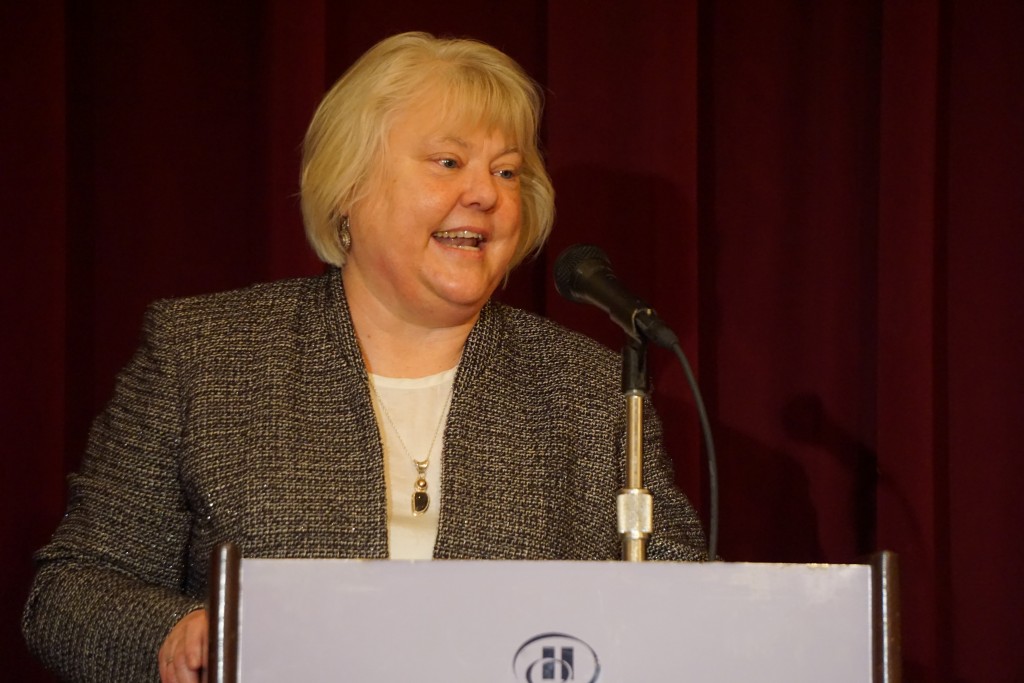
In addition to the conversation with Justice Breyer, Dean Morant selected stimulating topics for the President’s Programs including how law schools are responding to the demands of a global marketplace, facing and addressing challenges in the legal profession and an update on the ABA Commission on the Future of Legal Services.
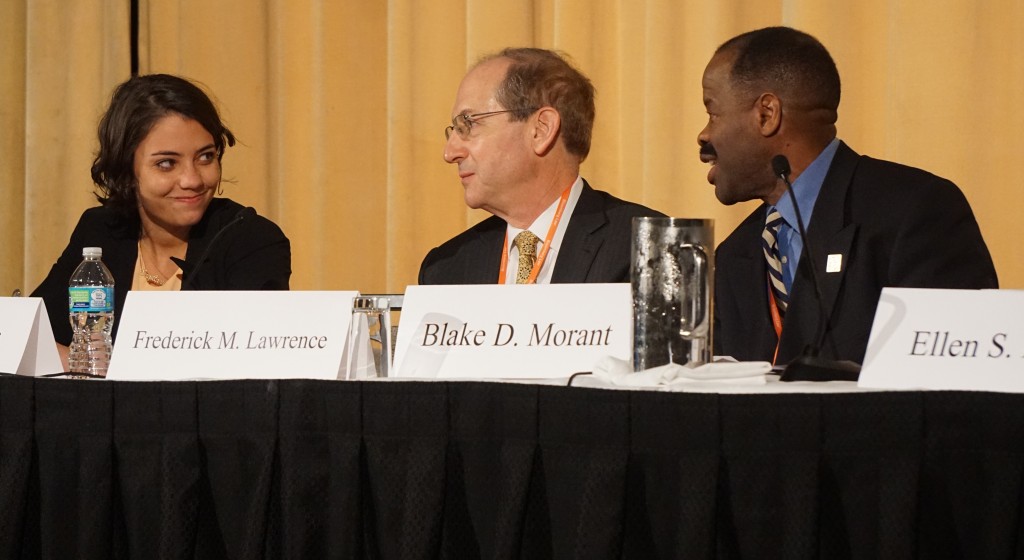
The Annual Meeting also hosted a variety of hot topic programs, aimed at discussing current and pressing issues in the legal world and in American society. These included the U.S. Supreme Court’s latest affirmative action case, Fisher v. Texas, the Paris agreement on climate change, and the 2016 U.S. Presidential Election’s impact on immigration law.
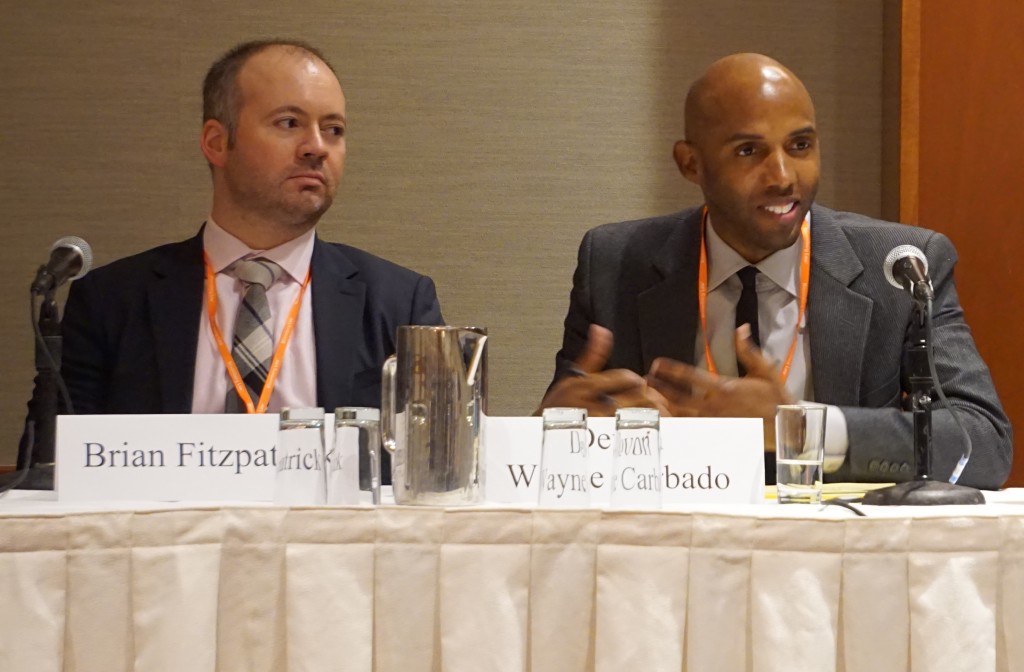
This year, AALS introduced Arc of Career Programs designed to address the professional development needs of law school faculty members at every stage of their career. These included sessions on book publishing, post-tenure scholarly engagement, and how to use the AALS Annual Meeting for networking and professional development.
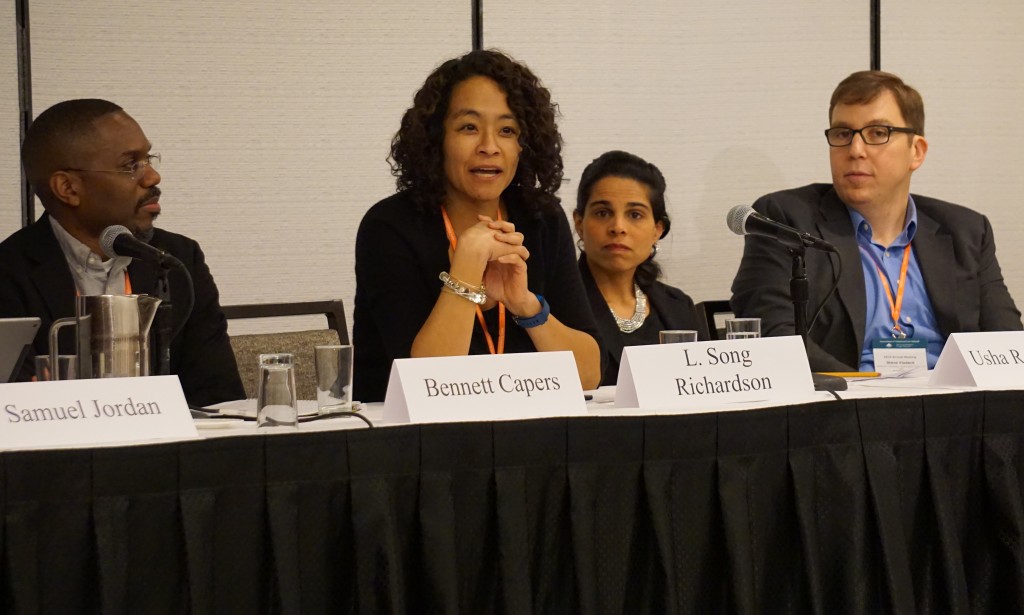
The 100 AALS Sections also hosted programs throughout the entirety of the meeting, covering such timely topics as the use of lethal injection in the death penalty, religion and same-sex marriage, the rise of ISIS and Boko Haram, the Affordable Care Act, and data privacy.
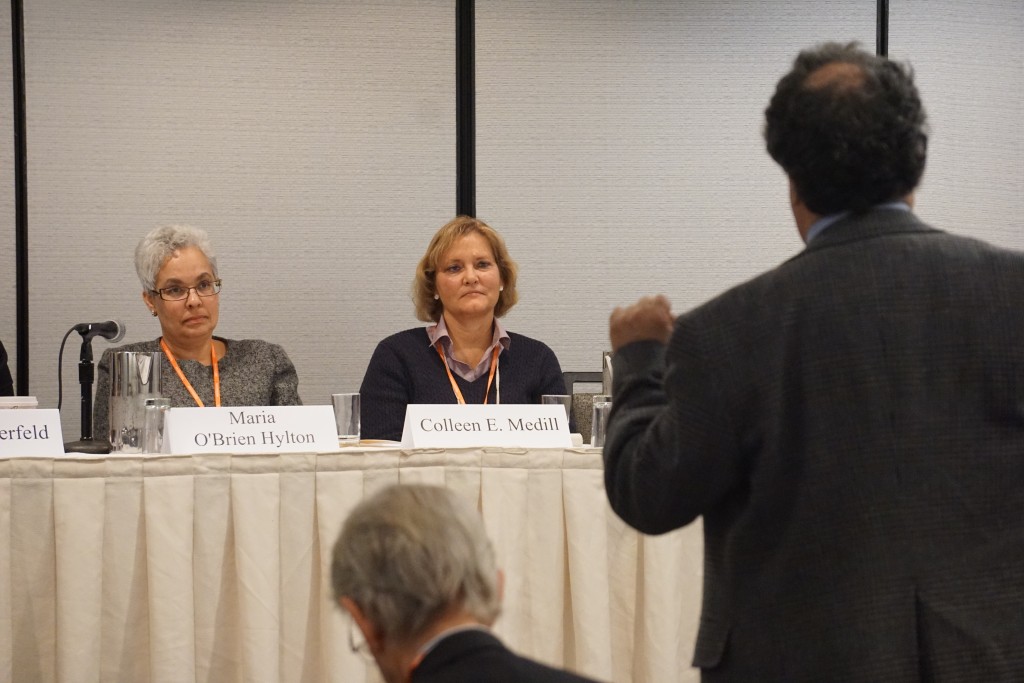
Several prominent federal judges joined the AALS and National Academy of Sciences Committee on Science, Technology, and Law joint program “Science and the Law” to discuss the use of scientific evidence used in court cases. Judges Jeremy Fogel, Harry Edwards, Gladys Kessler, and Jed Rakoff have all worked extensively to develop a report on this subject for judges across the country.
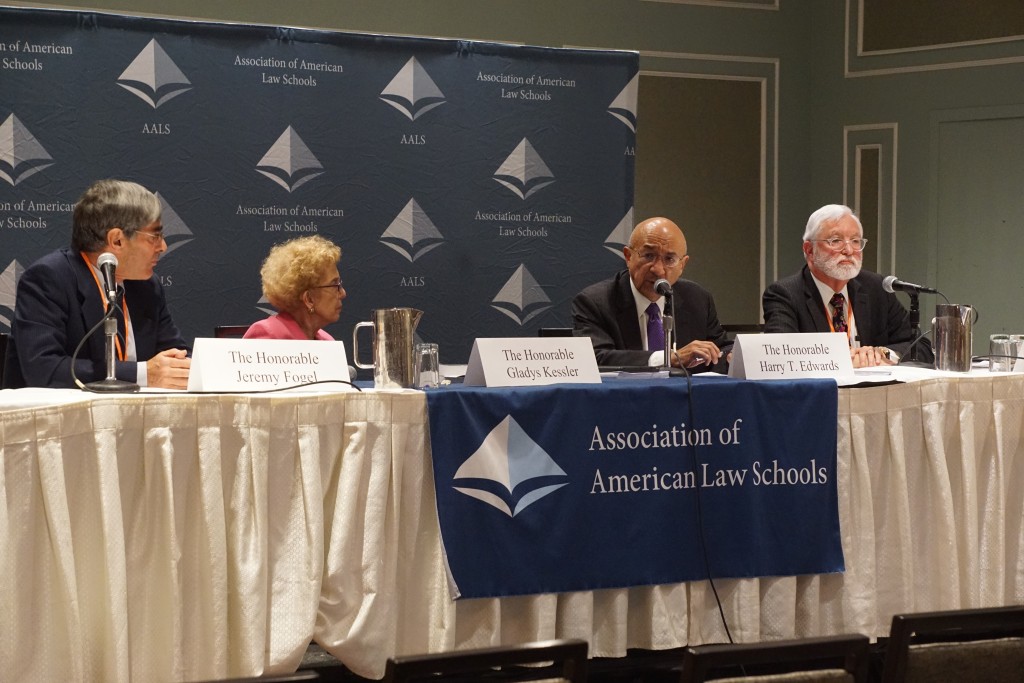
“The goal was not to make scientists out of judges,” said Judge Kessler, United States District Court for the District of Columbia. “Our goal was to provide the tools to judges that could help them handle very complex scientific issues in their cases.”
Other guest speakers at the AALS Annual Meeting included Paulette Brown, President of the American Bar Association and Partner at Locke Lord LLP, Jorge Elorza, Mayor of Providence, R.I., and Charles Schumer, U.S. Senator (N.Y.)
